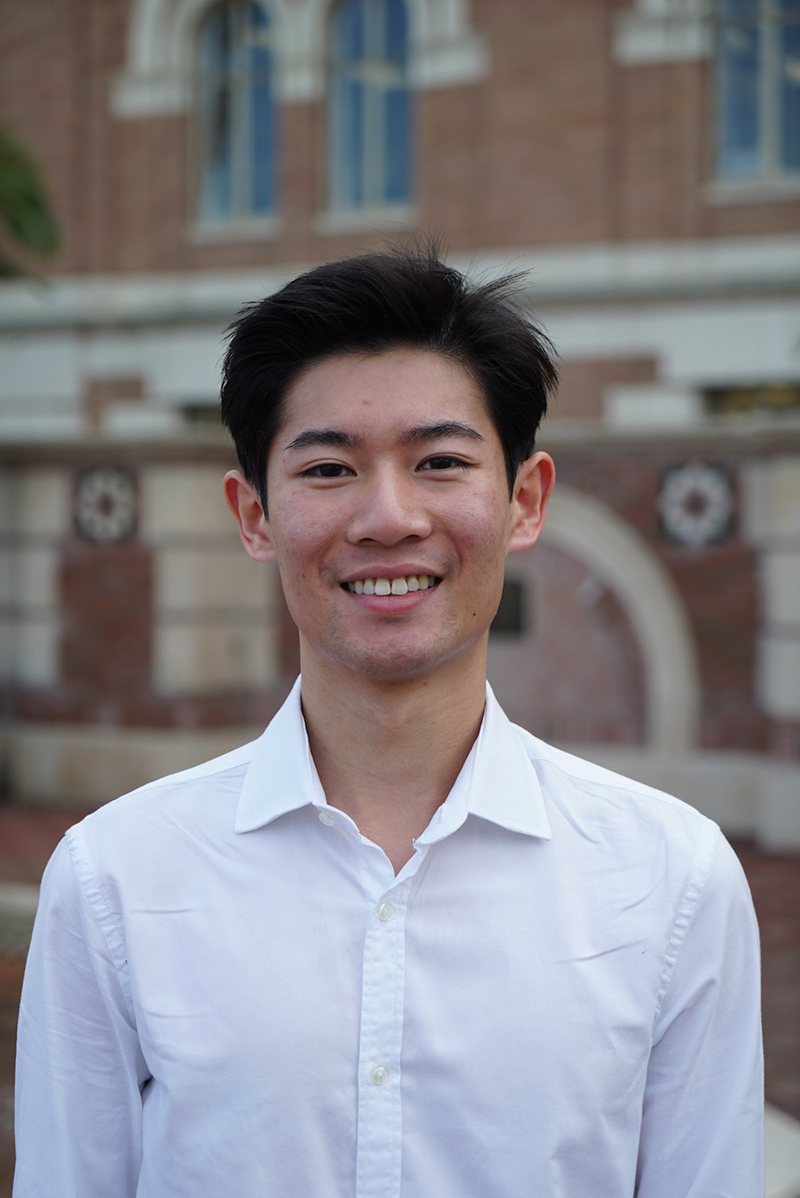Student-led club assists English-Chinese learners
 Every week, native English and Chinese speakers gather at Kaprielian Hall to practice their language skills with each other. This program, known as the Chinese English Language Exchange allows students not just to improve their speech but to also get a feel for the American and Chinese cultures and customs.
Every week, native English and Chinese speakers gather at Kaprielian Hall to practice their language skills with each other. This program, known as the Chinese English Language Exchange allows students not just to improve their speech but to also get a feel for the American and Chinese cultures and customs.
“We promote cross-cultural awareness as well as practicing language. Language practice is a major component, but the coolest part is the cultural exchange,” said Jonathan Krabbenschmidt, the public relations chair of CELE. “It’s really valuable for us as language learners to learn the different holidays and their significance and hear presentations from students being given in Chinese and English. It helps get everyone out of their comfort zone.”
The program started two years ago, with just a few students looking to improve their speaking skills. Under several Chinese professors, they decided to get a group together, comprised of both Chinese and English native speakers, to help take advantage of the other’s expertise.
“It’s difficult to get a grasp on a language if you don’t practice speaking outside of the class,” Krabbenschmidt said. “It expanded to include not just language practice, but also sharing each other’s cultures, and that’s where the exchange part began.”
As a relatively new organization on campus, CELE has encountered some difficulty in attracting an equal amount of speakers for both languages. Native English speakers learning Chinese, were especially in short supply.
“There’s more Chinese language speakers at the meetings than language learners, and I think it’s really important that there’s an equal balance,” Krabbenschmidt said. “There’s not as many Chinese language learners as, say, Spanish or French, so it’s a little hard to track more English speakers. It doesn’t matter what your Chinese speaking skills are, we’re always looking for more heads.”
Some students could also request to be paired up one on one, in order to cultivate a more intimate and personalized experience. These pairings often develop into genuine friendships, with the two spending time together outside of meetings getting to know each other better.
“I met with a girl, Kathy, once a week, and we talked for an hour in both English and Chinese,” said Turner Wong, a senior majoring in international relations. “We didn’t talk about school stuff. We talked about our friends, our families, what was happening in our lives, and we eventually ended up becoming good friends.”
Wong espoused the benefits of speaking with someone who could help her learn Chinese. Her familiarity with the area surrounding USC was also a plus, as she was also happy to help her partner navigate Los Angeles.
“I think the concept of talking with someone who is native is very helpful, and it’s always good to learn and meet people from other cultures,” Wong said. “And I could help her if she wanted to go to the beach, or she wanted to know where the good food places were, she would come to me.”
Since its inception two years ago, CELE has grown exponentially and is poised to become even larger in the upcoming years. Now officially USC-affiliated and receiving university funding, CELE now has the resources to put on more enriching events for its members.
“It’s a little sad for me to be leaving at this turning point, going from a small grassroots language practice club to a full USC-affiliated club where membership is growing,” Krabbenschmidt said. “My hopes would be for it to grow into something more prominent on campus, something that people know about and know anyone is welcome to go to.”

Congrats to all who participate in this important language/culture program because being being an international student is difficult. Assimilation assistance must come from numerous sources to aid these young people embarking on life’s journey. Most struggle in their efforts and need guidance from schools’ international departments, immigration protection, host families, concerned neighbors and fellow students, and even informative books to extend a cultural helping hand so we all have a win-win situation.
An award-winning worldwide book/ebook that reaches out to help anyone coming to the US is “What Foreigners Need To Know About America From A To Z: How to Understand Crazy American Culture, People, Government, Business, Language and More.” It is used in foreign Fulbright student programs and endorsed worldwide by ambassadors, educators, and editors. It also identifies “foreigners” who became successful in the US and how they’ve contributed to our society, including students.
A chapter on education explains how to be accepted to an American university and cope with a confusing new culture, friendship process and daunting classroom differences. Some stay after graduation. It has chapters that explain how US businesses operate and how to get a job (which differs from most countries), a must for those who want to work with/for an American firm here or overseas.
It also has chapters that identify the most common English grammar and speech problems foreigners have and tips for easily overcoming them, the number one stumbling block they say they have to succeeding here.
Good luck to all at USC or wherever you study or wherever you come from, because that is the TRUE spirit of the American PEOPLE, not a few in government who have the loudest voice!